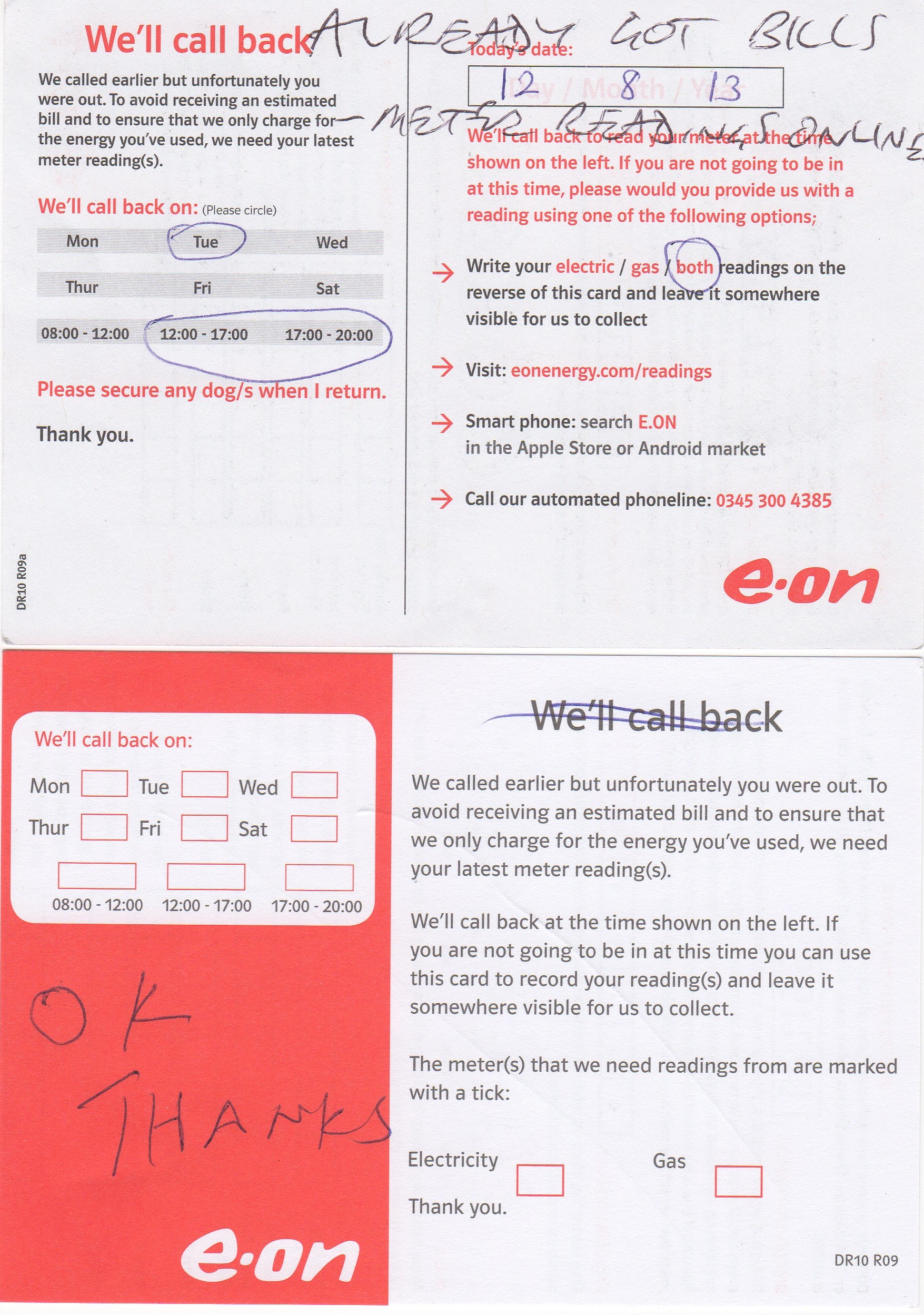 It is amazing what a skilled maturity analyst can learn about any large organization’s systems from their calling cards. E-on, my gas and electricity supplier, still employs two meter readers to visit my property even though I have been happily submitting my own meter readings online for some time. In the picture on the left are 2 calling cards left by their gas meter reader when no one was home. On the first I scrawled that I had already sent in my meter readings and left it in my window. He left the second card saying “OK Thanks”; having returned once more when no one was in. I am on good speaking terms with the electricity meter guy because I told him some time ago to let e-on know that we get two visits when neither is necessary. This has become a running joke between us.
It is amazing what a skilled maturity analyst can learn about any large organization’s systems from their calling cards. E-on, my gas and electricity supplier, still employs two meter readers to visit my property even though I have been happily submitting my own meter readings online for some time. In the picture on the left are 2 calling cards left by their gas meter reader when no one was home. On the first I scrawled that I had already sent in my meter readings and left it in my window. He left the second card saying “OK Thanks”; having returned once more when no one was in. I am on good speaking terms with the electricity meter guy because I told him some time ago to let e-on know that we get two visits when neither is necessary. This has become a running joke between us.
Now this might just be the most boring tale you have ever heard but it does have at least two morals: –
- You can have the best employees in the world, doing their best, but if they work for an organization without a whole system their efforts are wasted and their value is destroyed
- Systems should be designed around the customer (but don’t throw it back in their face when they try to make it work!)
At a time when everyone is complaining about rising fuel bills e-on is not exactly doing itself any PR favours by being blatantly inefficient and unresponsive to loyal customers. So why do organizations like e-on find it so difficult to mature and become a whole system?
The concept of maturity is simple enough and the most mature organizations are the most sophisticated but the main challenge in organizational transformation is the people dimension. You cannot achieve a whole system unless everyone understands what the system is and the part they have to play. A whole system approach goes much further though. Every single player in the system has to be trained to spot errors and holes in the system. Then they have to be allowed and enabled to suggest improvements and the executives have to be receptive and able to implement change. On this apparently superficial analysis e-on is at a very low level of maturity.
Calling cards are just one symptom of systemic weakness. The ability not only to spot whole system failings but to suggest how the whole system can be repaired requires a very high level of skill and insight. This is one of the key reasons MI exists – to teach managers what a whole system organization looks and feels like in order to help them transform it to everyone’s advantage.
Comments are closed